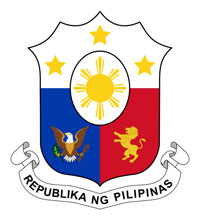U.S. citizens can petition for their fiancé or spouse to join them in the United States. In some cases, the fiancé or spouse might have children who wish to accompany or “follow-to-join” them. If the children are unmarried and under the age of 21, they can qualify to join or follow-to-join. This post will give you a starting point on what the ins and outs are of bringing Filipino children along with their parent.
Children of K-1 Visa Holders
Children of a K-1 holder would be eligible for a K-2 visa if they plan on accompanying the parent, or plan to follow-to-join, as long as they are unmarried and are under the age of 21.
Children of CR-1 Spousal Visa Holders
Children of a CR-1 holder would be eligible for a CR-2 visa if they plan on accompanying the parent, or plan to follow-to-join as long as:
The child is unmarried and under 21, and you married before the child turned 18.
Depending on who has custody of the children and your particular situation, the U.S. Embassy/Consulate may want to see evidence that the foreign fiancé or spouse has received the required permission to travel outside the country with their children. Usually this is accomplished with a court order or a notarized letter written by the child’s other parent indicating their consent for the child to travel with the foreign fiancé or spouse.
If your fiancé or spouse and their ex-spouse have joint custody and/or the children are born inside marriage and both biological parents are listed on the children’s birth certificates, you might require a court order allowing the children to immigrate to the U.S. or a notarized document from the biological parents allowing the children to immigrate to the U.S. Make sure that you check with your local U.S. Embassy or Consulate for documents that are required
Important: Check your own country’s laws on taking your children to live abroad if the other parent remains behind in your home country.
If you are planning to bring your fiancé or spouse’s children to the United States, your fiancé or spouse must make sure that they comply with their country’s custody requirements. Even if the children are legally in your fiancé’s or spouse’s custody, a court order, or written consent from the other parent, could be required for the children to leave the country.
Child Custody
Under Philippine law, if a child is born out of wedlock, the parental authority is vested in the child’s mother as outlined in the Family Code of the Philippines:
If a father recognizes a child born out of wedlock it could mean that they have to support the child, but it does not typically give the father the right to demand custody of the child.
If the father has an existing visitation or custody arrangement approved in court then he may take steps to prevent the child from leaving the country, including alerting the Bureau of Immigration. There is no specific guarantee against this move because the father has a right to have access to his minor child.
Note: If the child bears the father’s surname, the mother should be prepared to show proof of her relationship to the child. Typically, this can be done by providing a birth certificate.
Legitimate Children
Article 255
Children born after one hundred and eighty days following the celebration of the marriage, and before three hundred days following its dissolution or the separation of the spouses shall be presumed to be legitimate.
Children conceived or born during the marriage of the parents are legitimate. Legitimate children shall have the right to bear the surnames of the father and the mother.
Illegitimate Children
Article 165
Children conceived and born out of a valid marriage are illegitimate, unless otherwise provided in the Family Code, Illegitimate children as defined under the Civil Code of the Philippines who were born prior to August 3, 1988 and whose births were not previously registered shall be registered under the following rules in addition to those provided for delayed registration of births:
Recognition or acknowledgement of an illegitimate child may be made jointly by the father and mother or by only one of them (Art. 276 C. C.) When the father or the mother makes the recognition separately, he or she shall not reveal the name of the person with whom he or she had the child; neither shall he or she state any circumstance whereby the other parent may be identified (Art. 280, C. C.)
An illegitimate child has the right to bear the surname of the parent recognizing him (par. 1, Art. 282, C. C.) However, an illegitimate child who is not recognized or acknowledged by both parents in accordance with law shall be registered under the surname of the mother (Opinion No. 147 S. 1986, Minister of Justice).
Recognition shall be made in the record of birth, a will, statement before a record, or any authentic writing (Art. 278, C. C.). If made on record of birth at the time of registration the affidavit of acknowledgement printed at the back of the certificate of live birth shall be signed and sworn to jointly by the parents of the illegitimate child, or only by the mother if the father refuses (Sec. 5, Act No. 3753).
Travel Clearance for Minors
A DSWD travel clearance is a document that is required by Filipino children under the age of 18 who intend to leave the country with someone other than their parents. It’s issued by the Department of Social Welfare and Development (DSWD).
Note: A travel clearance is not required if the minor travels with at least one of their parents.
The mother has absolute parental discretion over children born out of wedlock. That means the father would need to secure a court order to have custody.
If the child is the subject of an ongoing custody battle, they will not be eligible to be issued a travel clearance unless a court order is issued. You are responsible for notifying the Bureau of Immigration to include the name of the child on the watchlist.
Traveling with Minors
When traveling with minors, there are a few things that you will want to prepare for in advance. Here is a list of a few items to help you prepare:
- Your children require a valid passport with at least 6 months left before expiry. Always check passports for expiration dates and renew the passport at the earliest opportunity.
- Parents with pending child custody cases should first obtain a favorable order from the court regarding any foreign travel to avoid being stopped at the airport (port of exit).
- Make photocopies of the children’s passports and keep them with you in the event a passport is lost. This can facilitate applications for new ones in case of loss or renewal.
Resources:
DSWD travel clearance Bureau of Immigration
Follow to Join US Embassy in Manila, Philippines Family Code of the Philippines






